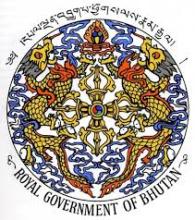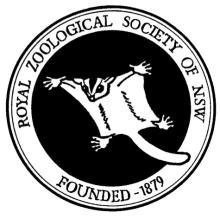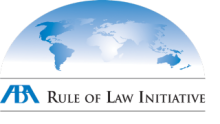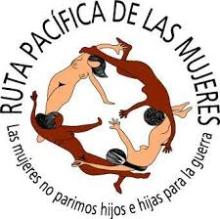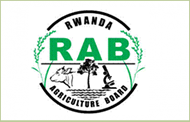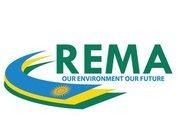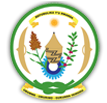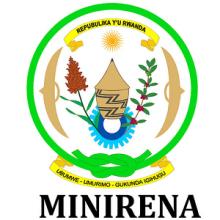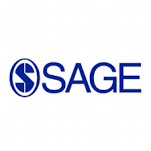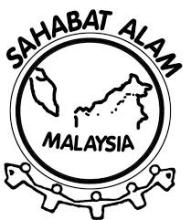La Biblioteca de la Tierra incluye recursos de más de 1.890 proveedores de información nacionales e internacionales. Aprenda más sobre las organizaciones e instituciones que utilizan el Land Portal para compartir sus investigaciones, datos e historias con acceso abierto.
Rio Tinto
We operate with pioneering spirit
Our long history is filled with firsts. We have developed some of the world’s largest and best quality mines and operations, and our people work in around 35 countries across six continents. We’ve led the industry in partnerships, with customers in new markets, and with local communities. We’ve pioneered technological innovations, such as our Mine of the Future™ programme and our low-CO2 aluminium from hydropower. And we’ve paved the way in areas such as safety, tax transparency and legacy management.
Yet, it’s not just about our past.
We continue to pioneer progress for a better future. Through research and innovation, we’re helping meet the needs of society in a growing and changing world. What we do brings benefits for our people, the communities in which we operate, and beyond.
RobynMeeks.com
Robyn Meeks is an Assistant Professor at the Sanford School of Public Policy at Duke University and a faculty affiliate of the Duke Energy Initiative.
Her research is at the intersection of environmental and development economics with much of her work focusing on understanding individual and household responses to the introduction of various water and energy technologies, policies, and types of infrastructure in developing countries. Professor Meeks has implemented field research in a number of countries, including Kyrgyzstan, Nepal, Kenya, Kazakhstan, and Peru.
Her prior and on-going energy-related research addresses topics such as: the impacts of energy efficient technologies on household electricity consumption and local electricity reliability, household perception of and response to non-linear electricity pricing, the impacts of grid versus off-grid electrification, and the impacts of alternative cooking fuels, such as biogas.
Professor Meeks has a Ph.D. from Harvard University, a master’s degree from Yale University, and a bachelor’s degree from Brown University.
Rochester Institute of Technology
FOUNDED IN 1829, Rochester Institute of Technology is a privately endowed, coeducational university with nine colleges emphasizing career education and experiential learning.
THE CAMPUS occupies 1,300 acres in suburban Rochester, the third-largest city in New York state. RIT also has international locations in Eastern Europe, Dubai, and China.
THE RIT STUDENT BODY consists of approximately 15,400 undergraduate and 3,200 graduate students. Enrolled students represent all 50 states and more than 100 countries. Nearly 3,200 students from diverse racial and ethnic backgrounds are enrolled on the main campus along with approximately 2,700 international students. An additional 1,760 students are enrolled at RIT’s international campuses.
RIT is an internationally recognized leader in preparing deaf and hard-of-hearing students for successful careers in professional and technical fields. The university provides unparalleled access and support services for the more than 1,200 deaf and hard-of-hearing students who live, study, and work with hearing students on the RIT campus.
Rockefeller Foundation
The Rockefeller Foundation’s mission—unchanged since 1913—is to promote the well-being of humanity throughout the world. Today, we pursue this mission through dual goals: advancing inclusive economiesthat expand opportunities for more broadly shared prosperity, and building resilience by helping people, communities and institutions prepare for, withstand, and emerge stronger from acute shocks and chronic stresses. To achieve these goals, we work at the intersection of four focus areas—advance health, revalue ecosystems, secure livelihoods, and transform cities—to address the root causes of emerging challenges and create systemic change. Together with partners and grantees, The Rockefeller Foundation strives to catalyze and scale transformative innovations, create unlikely partnerships that span sectors, and take risks others cannot.
ROPPA
PRÉSENTATION DU ROPPA
Le Réseau des organisations paysannes et de producteurs de l’Afrique de l’Ouest (ROPPA) a formellement été fondé en juillet 2000 lors d’une rencontre à Cotonou qui a rassemblé une centaine de responsables paysans mandatés par leurs organisations. Il regroupe des organisations ou "cadres de concertation" de 10 pays d’Afrique de l’Ouest (Bénin, Burkina Faso, Côte d’Ivoire, Gambie, Guinée, Guinée-Bissau, Mali, Niger, Sénégal, Togo,). Cet ensemble n’est pas fermé et l’ambition, à moyen terme, est d’accueillir des organisations paysannes de l’ensemble des pays de la CEDEAO, qui représente l’Afrique de l’Ouest réelle.
Le contexte socio-économique qui conditionne les activités des exploitations familiales et des organisations a été caractérisé, depuis 1998, par trois éléments majeurs qui ont motivé et mobilisé de nombreux leaders paysans de l’Afrique de l’Ouest pour créer et faire fonctionner le ROPPA :
- L’intégration sous-régionale : la construction d’un espace commun aux plans économique, social et institutionnel par l’UEMOA est aujourd’hui, de plus en plus une réalité tangible. En effet, une harmonisation en matière d’échanges avec le Tarif Extérieur Commun, avec l’OHADA sur le plan juridique, et au niveau des politiques de développement avec notamment la préparation de la Politique Agricole de l’UEMOA font du niveau sous-régional un lieu de décisions stratégiques avec des impacts sur nos activités et notre avenir.
- La décentralisation : au niveau des pays de l’Afrique de l’Ouest, suit une approche qui responsabilise de plus en plus les niveaux territoriaux à la base. Une telle option affirme la volonté théorique d’impliquer les acteurs à la base et exige de ces derniers des attitudes et des capacités nouvelles.
- La mondialisation : qui tire l’activité économique vers le "marché mondial " oblige les producteurs à entrer en compétition, d’abord sur les marchés nationaux face à d’autres acteurs (qui ne sont pas souvent les OPA du Nord) alors que les conditions de production et de mise en marché des produits sont totalement inégales
Le ROPPA doit impérativement pouvoir compter sur des organisations paysannes ou des "cadres de concertation nationaux" forts, capables de dialoguer avec leurs Etats respectifs. Sur ce plan, tous les pays ne sont pas logés à la même enseigne : certains gouvernements permettent plus facilement que d’autres le jeu démocratique et la vie politique nécessaire au développement des organisations paysannes. Aussi, une des priorités du ROPPA pour les trois ans à venir est de renforcer, par le biais d’échanges, de voyages d’études et de rencontres, les organisations et cadres de concertation paysans dans les pays où ils sont encore faibles.
En définitive, il s’impose de mettre en avant l’exploitation familiale comme base de la vision d’avenir qu’ont les OP pour l’agriculture et le monde rural. Pour les organisations paysannes du ROPPA, la famille rurale est le socle des sociétés agraires dans les pays africains. L’essentiel des actions et des politiques qui ont voulu appuyer l’agriculture l’ont toujours ignoré. Le ROPPA veut promouvoir l’amélioration des conditions d’exercice des activités des familles rurales, qui ne se restreignent pas à l’activité agricole.
Roundtable on Sustainable Plam Oil
We are a not-for-profit that unites stakeholders from the 7 sectors of the palm oil industry: oil palm producers, processors or traders, consumer goods manufacturers, retailers, banks/investors, and environmental and social non-governmental organisations (NGOs), to develop and implement global standards for sustainable palm oil.
The RSPO has developed a set of environmental and social criteria which companies must comply with in order to produce Certified Sustainable Palm Oil (CSPO). When they are properly applied, these criteria can help to minimize the negative impact of palm oil cultivation on the environment and communities in palm oil-producing regions.
The RSPO has more than 4,000 members worldwide who represent all links along the palm oil supply chain. They have committed to produce, source and/or use sustainable palm oil certified by the RSPO.
Vision & Missions
RSPO will transform markets to make sustainable palm oil the norm
- Advance the production, procurement, finance and use of sustainable palm oil products
- Develop, implement, verify, assure and periodically review credible global standards for the entire supply chain of sustainable palm oil
- Monitor and evaluate the economic, environmental and social impacts of the uptake of sustainable palm oil in the market
- Engage and commit all stakeholders throughout the supply chain, including governments and consumers.
Routledge
Routledge, Global publisher of quality academic books, journals & online reference
Routledge is the world's leading academic publisher in the Humanities and Social Sciences. We publish thousands of books and journals each year, serving scholars, instructors, and professional communities worldwide. Routledge is a member of Taylor & Francis Group, an informa business.
Routledge Environment & Sustainability
Routledge Environment & Sustainability is the leading global publisher in the interdisciplinary field of Environment & Sustainability studies.
Routledge Environment & Sustainability (formerly: Earthscan) offers a broad array of titles from accessible introductions to supplementary readings and from important research to cutting-edge series for a range of academics, professionals and general readers. Our publications cover wide-ranging topics from climate change, natural resources and the environmental humanities to sustainable energy, business and development.
Royal Government of Bhutan
Following Britain’s victory in the 1865 Duar War, Britain and Bhutan signed the Treaty of Sinchulu, under which Bhutan would receive an annual subsidy in exchange for ceding land to British India. Ugyen WANGCHUCK - who had served as the de facto ruler of an increasingly unified Bhutan and had improved relations with the British toward the end of the 19th century - was named king in 1907. Three years later, a treaty was signed whereby the British agreed not to interfere in Bhutanese internal affairs, and Bhutan allowed Britain to direct its foreign affairs. Bhutan negotiated a similar arrangement with independent India after 1947. Two years later, a formal Indo-Bhutanese accord returned to Bhutan a small piece of the territory annexed by the British, formalized the annual subsidies the country received, and defined India's responsibilities in defense and foreign relations. Under a succession of modernizing monarchs beginning in the 1950s, Bhutan joined the UN in 1971 and slowly continued its engagement beyond its borders.
In March 2005, King Jigme Singye WANGCHUCK unveiled the government's draft constitution - which introduced major democratic reforms - and held a national referendum for its approval. In December 2006, the King abdicated the throne in favor of his son, Jigme Khesar Namgyel WANGCHUCK. In early 2007, India and Bhutan renegotiated their treaty, eliminating the clause that stated that Bhutan would be "guided by" India in conducting its foreign policy, although Thimphu continues to coordinate closely with New Delhi. Elections for seating the country's first parliament were completed in March 2008; the king ratified the country's first constitution in July 2008. Bhutan experienced a peaceful turnover of power following parliamentary elections in 2013, which resulted in the defeat of the incumbent party. The disposition of some 18,000 refugees of the roughly 100,000 who fled or were forced out of Bhutan in the 1990s - and who are housed in two UN refugee camps in Nepal - remains unresolved.
The Kingdom of Bhutan is a constitutional monarchy.
Source: CIA World Factbook
Royal Institute of Technology
KTH Royal Institute of Technology in Stockholm is the largest and oldest technical university in Sweden. No less than one-third of Sweden’s technical research and engineering education capacity at university level is provided by KTH.
Education and research spans from natural sciences to all branches of engineering and includes Architecture, Industrial Management and Urban Planning.
KTH's research
Several national research centres are hosted by KTH. KTH is also a major partner in two out of three European Knowledge and Innovation Communities formed by the prestigious EU organization EIT (European Institute of Innovation and Technology); InnoEnergy within the field sustainable energy and EIT ICT Labs within information and communication research. Five strategic multidisciplinary research platforms have been formed to further enhance KTH’s attraction as a major strategic research partner.
KTH is an international university with many international researchers and students, especially at Master’s level. Extensive international research and educational exchange programmes allow for exchange with universities and colleges in Europe, the U.S. and Australia, but also increasingly in Asia. KTH is a partner in several international university networks such as CLUSTER and T.I.M.E.
Royal Tropical Institute
About KIT
KIT aims to improve health and ensure equitable social-economic development as much as promote intercultural cooperation with our partners worldwide. As we focus on results and empowering people our research, advice, training and education are creative, context specific and evidence-based. We are an innovative organisation with more than 100 years of experience all over the world. A global host in our very own international knowledge hub in Amsterdam.
Royal University of Phnom Penh
INTRODUCTION
The Royal University of Phnom Penh (RUPP) is Cambodia’s oldest and one of the largest public universities. It hosts more than 12,000 scholarship and full-fee paying students, across a diverse range of undergraduate and postgraduate programs. It is unique in Cambodia for offering specialist degrees in fields including the sciences, humanities and social sciences, as well as professional degrees in fields such as information technology, electronics, psychology, social work, and tourism. RUPP also provides Cambodia’s foremost degree-level language programs through the Institute of Foreign Languages. Due to its many achievements, RUPP has full membership of the ASEAN University Network (AUN).
RUPP has over 450 full-time staff. All of its 335 academic staff members hold tertiary qualifications, including 15 PhDs and 280 Masters degrees. They are supported by over 120 administrative and maintenance staff. In addition, the university maintains links with Cambodian and international NGOs, local and international universities and government ministries. As a result, various international and non-government organizations and government offices regularly contribute adjunct faculty members to help expand RUPP’s capacity.
RUPP is located on three spacious campuses. The main campus lies roughly five kilometers from the center of Phnom Penh. Adjoining the main campus is the Institute of Foreign Languages, which boasts peaceful landscaping features alongside its modern architecture. Roughly one kilometer further from town lies RUPP Campus II, in which the departments of History, Sociology and Philosophy reside.
Royal Zoological Society of New South Wales
The Royal Zoological Society of New South Wales' (RZS NSW) main focus is to foster the study and conservation of Australia's unique native fauna. If you are passionate about the study and conservation of Australia's exceptional wildlife, do join our society today. We depend upon the support of our members.
RUAF Foundation - Urban Agriculture Magazine
About
The RUAF Foundation is a global network with member organisations in Africa, Asia, the Middle East, Latin America and Europe together constituting a leading centre of expertise in the field of (intra- and peri-) Urban Agriculture and City Region Food Strategies. The following organisations are currently part of the RUAF Foundation: the International Water Management Institute, The Institute of Geographical Sciences and Natural Resources Research of the Chinese Academy of Sciences and ETC Foundation.
RUAF is a not-for-profit organisation registered in the Netherlands and in operation since 1999 that seeks to contribute to the development of sustainable cities by facilitating awareness raising, knowledge generation and dissemination, capacity development, policy design, and action planning regarding resilient and equitable urban food systems. Find here the Dutch registration and Statutes.
The RUAF Foundation promotes (intra- and peri-) urban agriculture and city region food systems for more sustainable and resilient cities.Since1999, RUAF is supporting local governments, urban producer organisations, NGOs, CBOs, research centres and other stakeholders with training, technical assistance, action-research, policy lobby, advocacy and design in the field of urban agriculture and urban food strategies. RUAF is publishing the Urban Agriculture Magazine, books, technical and methodological guidelines and working papers on urban agriculture and city region food systems reaching about 800.000 readers globally today. In addition, we support local, national and international advocacy and learning activities.
Mission
The RUAF Foundation seeks to contribute to reducing urban poverty, enhancing urban food security, improving urban environmental management and stimulating participatory city governance. RUAF contributes by enhancing the capacities of local authorities and other stakeholders and facilitating the integration of (intra- and peri-) urban agriculture and city-region food measures in the policies and action programmes of local, regional and national governments, civic society organisations and private enterprises, with active involvement of the urban producers and other relevant stakeholders.
Nature of the RUAF network
The RUAF Foundation is an international network in which optimum use is made of the relative strength of each of its member organisations. The RUAF network is oriented towards the delivery of practical and high-quality results, applying a demand-driven and participatory approach while remaining flexible and providing room for change and innovation. The RUAF research and development projects, as well as its training and advisory activities,are undertaken in response to the support needs expressed by our local partners (local and regional authorities, NGOs, universities, urban producer groups, private enterprises and other stakeholders). RUAF applies a participatory approach to project planning and implementation. Project process and results are regularly reviewed together with the local partners to improve the impact and sustainability of the projects and to enhance the partners’ self-learning capacity.
Experiences gained in certain types of activities are shared among the partners in the RUAF network, systematised, and published as RUAF working papers, policy briefs, guidelines, training manuals, and so on and disseminated to various types of users, through the RUAF website, the Urban Agriculture Magazine, and the publication of books and working papers
Rule of law Initiative
The mission of the American Bar Association Rule of Law Initiative is to promote justice, economic opportunity and human dignity through the rule of law.
Rural Development Fund
About
The Rural Development Fund is a not-for-profit and nongovernmental policy and research organization established in 2003 to conduct research, develop policy recommendations, and implement activities in the field of the rural development.
Our Mission
Support locally appropriate initiatives to alleviate poverty and achieve sustainable development in rural areas.
RDF strives to apply the best and most appropriate local, national, and international experience to achieve development objectives. RDF engages communities, policy-makers, and the donor community in order to find solutions for development that meets local rural needs.
RDF has hands-on experience in designing technical assistance interventions, mobilizing staff, engaging local counterparts, ensuring results, and properly documenting experience and lessons learned for further dissemination. RDF designs survey and study methods, sampling methodology, develops survey tools, mobilizes and trains interviewers, and supervises their field work, conducts data entry and analysis, and provides analytical reports in English, Russian, and Kyrgyz languages. RDF has a network of experienced field enumerators and supervisors in all oblasts of the Kyrgyz Republic.
RDF believes in the importance of local, national, and international context in achieving development objectives. We seek to tailor our research and analysis to particular development objectives.
We provide innovative ideas and approaches while drawing on a combination of substantial experience in Kyrgyzstan and the region and technical expertise in a range of areas such as natural resources management, local governance, social mobilization and inclusion, and agricultural economics. RDF has a track record of implementing programs with the involvement of multiple projects and/or donors on a collaborative basis.
Rural Research & Development Training Center
Since April 2004, the Rural Research and Development Promoting Knowledge Association has been operating under the umbrella of the Lao Union of Science and Engineering Associations (LUSEA) based namely Rural Research & Development Training Center (RRDTC).
Vision Statement
“Sustainable and Equitable Community Development throughout Lao PDR”
RRDPA recognizes that community development in Lao PDR is not yet sustainable because of many factors including, a lack of education, financial constraints. Institutions, organizations and communities are not able to adapt and response to these, due to the lack of knowledge, resources, information and social changes.
A Social Indicators Survey is being undertaken by the Lao PDR Government, with support from a number of international organizations, as part of the plan to accelerate progress towards achieving the UN Millennium Development Goals by 2015.
The social Indicators Survey will focus on what measures the government must take to ensure the effective implantation of its policy goals. RRDPA supports this initiative and has the capacity to assist in this survey applications, and implementation.
Also, development has not been equitable because of the differing types of development that are occurring in Lao PDR. Urban development is focused on expansion of facilities and resources whereas; Rural Development is concentrated on a changing use of land. The allocation of financial and socioeconomic resources is also concentrated on urban populations rather than rural population.
Our Philosophy
Based on participatory development, we are guided by your organization’s need and the need and input of the people involved. Trainees are central to our training program. We recognize trainee’s diverse experiences working in community development and that all trainees have a lot to share and learn from each other.
Mission
” RRDPA is a non-profit association that develops capacity for rural ethnic communities to achieve MDG 1 through working in a participatory manner with government, civil society organizations and other like-minded development partners”
Focus
Our focus is on rural community development and capacity building of the Lao population from "rice roots" villagers to senior officials to help achieve the Lao National Millennium Development Goals:
- to half poverty by 2015
- to promote gender equality and empowerment of women
- to reduce child mortality and improve maternal health
- to ensure environment sustainability
Rural Women’s Assembly of Southern Africa
About
The Rural Women’s Assembly (RWA) is a self-organised network or alliance of national rural women’s movements, assemblies, grassroots organisations and chapters of mixed peasant unions, federations and movements across eight countries in the SADC region.
Over a period of four years, we have gathered together poor, rural women into regional Rural Women’s Assemblies; into international platforms coinciding with major multi-lateral events, such as COP 17 and Rio +20; and into regional lobbying processes that have run parallel to SADC meetings, as well. National chapters of the RWA have also organised their own lobbying events and activities to coincide with important national meetings, summits and on international days, such as International Rural Women’s Day and International Women’s Day.
Rural21
The international journal Rural 21 has dedicated more than 40 years to all topics surrounding rural development. Its ambition is to further those strategies and policies that strengthen rural areas of developing and newly industrialising countries and encourage their implementation. The journal addresses the complete range of relevant themes – from agriculture and fisheries via capacity building and education through to health and social security, energy supply and trade. Center-stage is always devoted to inquiring into how measures and strategies can contribute to global food security and to reducing poverty.
Rural 21 desires to further the dialogue between science and politics, the private sector, civil society and practitioners. Two platforms are designed for this purpose: Rural 21 in print is published four times a year, each issue highlighting a specific focus of rural development – this print edition is read in more than 150 countries. In parallel, Rural 21 online keeps the rural development community up to date on news and events, scientific findings and other print and online publications.
Rural 21 is published by DLG-Verlag GmbH in Frankfurt/Germany. Financial partners are BMZ (German Federal Ministry for Economic Cooperation and Development), GIZ (Deutsche Gesellschaft für Internationale Zusammenarbeit), DLG (German Agricultural Society – Deutsche Landwirtschaft-Gesellschaft), SDC (Swiss Agency for Development and Cooperation) and Helvetas Swiss Intercooperation.
The first issue of Rural 21 dates back to 1968. From 1974 to 2007, the journal was published in three languages entitled "entwicklung & ländlicher raum" / "agriculture & rural development" / "agriculture & développement rural". In 2008, the journal was relaunched as "Rural 21".
Ruta Pacífica de las Mujeres
La Ruta Pacífica de las Mujeres es un movimiento feminista que trabaja por la tramitación negociada del conflicto armado en Colombia
Rwanda Agriculture Board
The Rwanda Agriculture Board (RAB) is an autonomous body established by LAW N°38/2010 OF 25/11/2010. The law specifies that: RAB has the general mission of championing the agriculture sector development into a knowledge based; technology driven and market oriented industry, using modern methods in crop, animal, fisheries, forestry and soil and water management in food, fibre and fuel wood production and processing.
RAB was formed from three agriculture agencies, namely the Rwanda Animal Resources Development Authority (RARDA), the Rwanda Agricultural Development Authority (RADA) and the Rwanda Agriculture Research Institute (French acronym: ISAR).
The Government of Rwanda expects this reform to remove the historical legacy that created artificial gaps between research and extension, strengthen the linkage with policy, and establish efficiency in service delivery through institutional integration in the agricultural sector for improved livelihoods of the Rwandan people.
This expectation premises on: physical proximity under one administrative structure, using a common standard operating procedure, which removes institutional boundaries by improving communication, mutual understanding and consensus building between extension, research and policy.
The research-extension-policy nexus is critical for intensifying the focus and increasing the relevance of research and extension to pertinent issues required for acceptable levels of agricultural sector growth and contribution of the sector to overall socioeconomic development process in Rwanda.
RAB’s Vision
Improved food security and livelihoods of all Rwandans by transforming agriculture from subsistence into modern farming through generating research and extension innovations that generate sustainable crop, animal husbandry and natural resource management
RAB’s Mission
Developing agriculture and animal husbandry through their reform, and using modern methods in crop and animal production, research, agricultural extension, education and training of farmers in new technologies
Core Values and Goals
Beliefs that are shared by stakeholders of an organization are often referred to as values. Values drive the organization’s priorities and hence provide a framework in which decisions are made. Since research and extension are the keys to success of RAB as an organization, responding to farmers’ needs through reforms and modern methods serve as core values.
‘Delivering demand-driven, market oriented research and extension activities’ thus represents RAB’s core value. Conceivably therefore, it is important that RAB’s activities are designed around this founding framework. A major strategic resource of RAB is the pool technical capacities in agriculture sector. Given this core competency, the organization requires entrepreneurship as a complement in order to translate technologies and knowledge into innovations that respond to market demands. The strategic plan presented in this document aims at setting directions for crafting and delivering the expected innovations to the end users so as to facilitate the shift of Rwanda’s farmers from subsistence to market oriented farming. This forms the goal of the strategic plan.
Rwanda Environment Management Authority
REMA is non-sectorial institution mandated to facilitate coordination and oversight of the implementation of national environmental policy and the subsequent legislation.
REMA has a key role to play towards the achievement of the national goal of sustainable development as set in out in the National Developement Vision 2020.
The alarming rate of environmental destruction as a result of population pressure, serious erosion, pressure on natural resources, massive deforestation, pollution in its various forms etc. necessitated the Government, to form REMA to coordinate, supervise and regulate environmental management for sustainable development in Rwanda.
Mission of REMA
To promote and ensure the protection of the environment and sustainable management of natural resources through decentralized structures of governance and seek national position to emerging global issues with a view to enhancing the well-being of the Rwandan people.
REMA Vision
All sectors of the Rwandan Society value and undertake sound environmental management and rational use of natural resources in order to contribute to the national aspirations for sustainable development.
Responsibilities of REMA
As stipulated in the Law N° 63/2013 of 27/08/2013 determining the Mission, Organization and Functioning of Rwanda Environment Management Authority (REMA), REMA has the following main responsibilities:
- To implement Government environmental policy;
- To advise the Government on policies, strategies and legislation related to the management of the environment as well as the implementation of environment related international conventions, whenever deemed necessary;
- To conduct thorough inspection of environmental management in order to prepare a report on the status of environment in Rwanda that shall be published every two (2) years;
- To put in place measures designed to prevent climate change and cope with its impacts;
- To conduct studies, research, investigations and other relevant activities in the field of environment and publish the findings;
- To closely monitor and assess development programs to ensure compliance with the laws on environment during their preparation and implementation;
- To participate in the preparation of activities strategies designed to prevent risks and other phenomena which may cause environmental degradation and propose remedial measures;
- To provide, where it is necessary, advice and technical support to individuals or entities engaged in natural resources management and environmental conservation;
- To prepare, publish and disseminate education materials relating to guidelines and laws relating to environmental management and protection and reduce environmental degradation risks;
- To monitor and supervise impact assessment, environmental audit, strategic environmental assessment and any other environmental study. REMA may authorize in writing, any other person to analyze and approve these studies.
Rwanda Initiative for Sustainable Development
The Rwanda Initiative for Sustainable Development (RISD) is a civil society organization that is headquartered in Kigali City, in Rwanda. RISD is governed by a Board of Directors, and is managed by its Chief Executive Officer, Ms. Annie Kairaba.
RISD was established in the period following the Rwandan genocide in 1994; and started its operation in Rwanda, cognizant that ‘Land’ is a priority issue in the country and underpins the country’s quest for sustainable development.
RISD recognizes that issues on land are a ‘governance issue’: in 1994, land was highly politicized by mobilizing one section of the population against another, with the motivation of ‘taking up the land of the dead’. In recent years, new land related issues also emerge as Rwanda experiences rapid urbanization and increased population. Since its two-decade long of operation,
RISD has developed a reputation for its commitment, integrity and impact in promoting people-centered responses and advocacies that contribute towards a more just and equitable society.
RISD works at different levels for its advocacy works, action research, knowledge management, public information and awareness campaigns and networking (local, national, regional and international levels). RISD is currently present in 11 districts of the 30 districts of Rwanda, viz.: Gasabo, Kicukiro, Nyarugenge (Kigali City Council); Karongi & Rubavu (Western Province); Kamonyi, Muhanga & Nyaruguru (Southern Province); Musanze and Gakenke (Northern Province); and Kirehe (Eastern Province).
RISD works closely with grassroots community members and local leaders at the cell, sector and district levels. RISD also maintains a high-profile relationship with the central government and other civil society organizations;
RISD is an active member of the following Regional and International Networks:
- LandNet (coordinator of LandNet-Rwanda Chapter)
- International Land Coalition-African Node
- Steering Committee Member of Global Green Growth Institute (GGGI)
- Global Civil Society Network
- UN Women’s Land Rights Group
Rwanda Ministry of Agriculture, Animal Resources, and Forestry
Mission
To initiate, develop and manage suitable programs of transformation and modernization of agriculture and livestock to ensure food security and to contribute to the national economy.
Vision
The Vision for is to modernize Agriculture and Livestock to achieve food security.
One of the key pillars of this vision is the transformation of Agriculture from subsistence to a productive high value, market oriented farming that is environmentally friendly and has an impact on other sectors of the economy.
The policy of the Ministry of Agriculture and Animal Resources is to increase animal production, modernize farming, reduce poverty, ensure food security and have surplus for the market. This will ultimately result in the increase of the standard of living of the population. The transformation of the animal resources industry can only be achieved if the constraints to animal production are reversed.
Strategic orientations
Ten strategic thrusts have been identified, as follows :
1. Diversification and intensification of plant, animal and fish production
2. Diversification of income and employment sources for rural populations
3. Linking products to markets and mainstreaming the agricultural economy into the national and regional economies
4. Sustainable management of natural resources, particularly soil and water
5. Organization, mobilization and capacity-building for producers and their organizations
6. Capacity-building for service providers, privatization and private-sector development
7. Creating an enabling institutional framework for the professionalization of producers and modernization of agriculture in Rwanda
8. Creating an enabling environment for productive investment and the development of entrepreneurship and employment in agro-industry
9. Redefining the role of the Ministry of Agriculture and redirecting its actions towards the sector programme approach in a context of decentralization
10. Promoting the gender approach and reducing vulnerability among disadvantaged groups
Four priority programmes
The plan of action focuses on four priority programmes :
1. Agriculture and Animal Resource Intensification
2.Research, Technology Transfer and Professionalization of Farmers
3. Value Chain Development and Private Sector Investment
4. Institutional Development and Agricultural Cross-Cutting Issues
Rwanda Ministry of Environment and Natural Resources
The Ministry of Natural Resources shall have the mission to ensure the protection and conservation of the environment and ensure optimal and rational utilization of natural resources for sustainable national development.
Specifically, the Ministry of Natural Resources shall be responsible for:
1. Developing and disseminating the sector policies, strategies and programs through:
a) elaboration and dissemination of national policies, strategies and programs that aim at conserving the environment and ensuring optimal and rational utilization of natural resources;
b) develpment of strategies to promote partnership and enhace capacity of private sector and attract operators to invest in activities of environment and natural resources for sustainable economic development;
c) exhaustive assessment of Rwanda ground and surface natural resources and establish appropriate mechanisms for their national extraction and promotion.
2. Regulating the sector and related sub-sectors through the development of development of laws and regulations to ensure rational utilization of natural resources and ensure protection of the environment and conservation of natural ecosystems
3. Developing institutional and human resources capacities in the sector of environment and natural resources and sub-sectors.
4. Monitoring and evaluating the implementation of sector and sub-sectors policies, strategies and programs through:
a) setting up and implementation of appropriate mechanisms and systems for monitoring and evaluation of environment and climate change situation in the country as well as in the region;
b) monitoring and assessing the implementation and mainstreaming of policies and laws that enhance the protection of environment and the rational utilization of natural resources in all cross-cutting sectors in the country;
c) monitoring the sector performance indicators and consolidating the data from decentralized institutions;
d) submitting to the government periodic and annual reports on the impact of the sector policies, strategies, programs and projects on sustainable national social economic development.
5. Overseeing the institutions under supervision through:
a) guidance and orientations on the implementation of specific programs to be realized by the institutions under supervision and Local Governments;
b) supervision and orientations on functioning of sector public institutions and promote synergies between various actors intervening in the sector;
6. Mobilizing resources for the development of the sector and related programs through:
a) coordination of activities of mobilizing resources and supervise actions to ensure their rational utilization in the sector development;
b) mechanisms put in place for promoting and development in the sector
Rwanda Women Network
About
Rwanda Women’s Network (RWN) is a national humanitarian non-governmental organization (NGO) dedicated to promotion and improvement of the socio-economic welfare of women in Rwanda since coming to being in 1997. Over time, the organization has dedicated its efforts to strategies that empower women and has extensive experience in fostering women’s participation and grassroots responses to community challenges. To date, RWN works with various local and international partners, and plays a capacity building and facilitating role to a network of over 52 grassroots associations across the country.
Vision
The Network’s vision is for a healthy, empowered and peaceful Rwandese society.
Mission
RWN’s mission is to work towards improvement of the socio-economic welfare of women in Rwanda through enhancing their efforts to meet their basic needs.
Goals
- To economically empower poor women and widows in the rural and urban areas through competent financial and managerial systems
- To foster economic and social growth within households and communities
- To improve health status of women and children
- To promote peace and reconciliation
Ryukoku University
With its roots dating from 1639, Ryukoku University is one of the oldest Universities in Japan. Founded on the principles of Jodo Shinshu Buddhism, the University today has seven faculties ranging from the humanities to the natural sciences. Boasting a student population of approximately 20,000 spread over three unique, attractive and accessible campuses in the ancient capital of Kyoto and neighboring Shiga, the university continues to preserve the past while at the same time press the boundaries of knowledge into the future.
Sage Publications
Founded in 1965, SAGE is a leading independent, academic and professional publisher of innovative, high-quality content.
Known for our commitment to quality and innovation, SAGE has helped inform and educate a global community of scholars, practitioners, researchers, and students across a broad range of subject areas.
With over 1,500 employees globally from principal offices in Los Angeles, London, New Delhi, Singapore, and Washington, D.C., we publish more than 900 journals and over 800 books, reference works and databases a year in business, humanities, social sciences, science, technology and medicine.
Believing passionately that engaged scholarship lies at the heart of any healthy society and that education is intrinsically valuable, SAGE aims to be the world’s leading independent academic and professional publisher. This means playing a creative role in society by disseminating teaching and research on a global scale, the cornerstones of which are good, long-term relationships, a focus on our markets, and an ability to combine quality and innovation.
Leading authors, editors and societies should feel that SAGE is their natural home: we believe in meeting the range of their needs, and in publishing the best of their work. We are a growing company, and our financial success comes from thinking creatively about our markets and actively responding to the needs of our customers.
Sahabat Alam Malaysia
Sahabat Alam Malaysia (SAM) or Friends' of the Earth Malaysia, is an independent non-profit national organisation established in 1977. SAM is a registered body under the Societies Act 1966 and has been a member of the Friends of the Earth International since 1983.
SAM is involved in a variety of activities and campaigns to ensure that environmental justice is linked to social justice and that development choices and the management of natural resources are sustainable and ecologically-sound. It supports the struggle of the indigenous peoples in defending their indigenous customary rights and the natural resources of the tropical rainforests.
We operate 2 offices; one in Penang in Peninsular Malaysia and the other in Sarawak on the island of Borneo. The Penang office remains the headquarters of SAM.
Our Vision
To create a peaceful and sustainable world based on societies living in harmony with nature. We envision a society of interdependent people living in dignity, wholeness and fulfillment in which equity and human and peoples' rights are realised. We believe that our children's future will be better because of what we do.
Our Mission
-
To ensure environmental and social justice, human dignity, and respect for human rights and peoples' rights so as to secure sustainable societies.
-
To halt and reverse environmental degradation and depletion of natural resources, nurture the earth's ecological and cultural diversity, and secure sustainable livelihoods.
-
To secure the empowerment of indigenous peoples, local communities, women and other stakeholders in their participation in decision making.
-
To bring about transformation towards sustainability and equity between and within societies with creative approaches and solutions.
-
To engage in vibrant campaigns, raise awareness, mobilise people and build alliances with diverse movements, linking grassroots, national and global struggles.
Activities
Our activities include educating the general public on the need for ecologically sound development; assisting communities which have been adversely affected by so-called development; and strongly advocating for a development model that is ecologically sustainable, socially just and fulfils the human needs of the majority.We are a small team of dedicated staff that works closely with grassroots community, conducts in depth research into a variety of issues, lobby law and policy makers both at national and international levels, builds like minded alliances and prepares materials for publication which cater to different strata of society. We also work closely with our lawyers in giving legal advise to communities and where necessary represent them in legal suits. SAM’s work has led to greater environmental awareness and policy and legislative reforms in the area of environmental quality, pesticides use, occupational safety and health, fisheries, depletion of non-renewable sources, wildlife conservation, etc.
Empowerment
We have for years empowered farmers, fishermen, Orang Asli and Asal (Indigenous Peoples), students and women through education and awareness raising workshops on fundamental rights in the constitution. During the course of our work we have trained both young and old activists to set up their own organisations to bring to fore any injustice they come across. To date SAM has helped set up more than 20 active local groups and indigenous peoples residents' associations in Malaysia.
Who we work with
Our work does not only stop with the rural and minority communities, we also work with government agencies, parliamentarians, other community based organisations and NGOs, public interest lawyers and the media.
Honour Roll
For its efforts in highlighting the destruction of the tropical rainforests in Sarawak and in bringing the plight of the indigenous peoples to the attention of the international community, SAM was awarded the Right Livelihood Award also known as the alternative Nobel Prize in 1988 and the Goldman Award in 1991. In 1987, SAM was awarded the Global 500 Honour Roll and in 1998, we received the Conde Nast Travel Environment Award.
Sahmakum Teang Tnaut
Sahmakum Teang Tnaut: a Cambodian Urban NGO
Vision
A society in which urban inhabitants enjoy adequate housing within a sustainability developing city.
Mission
To provide pro-poor technical assistance for housing and infrastructure and to inform dialogue and raise awareness about urban issues
Background
Phnom Penh based Sahmakum Teang Tnaut (‘STT’) was set up in September 2005 and officially registered with the Ministry of Interior in December 2006. ‘Teang Tnaut’ means ‘Sugar Palm Leaf’ in Khmer and is used for house construction, thatch roofs, sugar and packaging. This icon of the Cambodian landscape evokes a simplicity and usefulness which STT tries to reflect in its work with urban communities. From the outset STT has had a focus on infrastructure upgrading but over the past decade many communities have been impacted by development-related land alienation and evictions. Because of this STT has strengthened its research and advocacy to draw attention to a development policy that in Phnom Penh alone has led to 150,000 residents being displaced since 1990. By supporting genuine community complaints and grievances STT and its partners have been helping communities articulate their concerns to local and international media, donors and other NGOs & INGOs.









